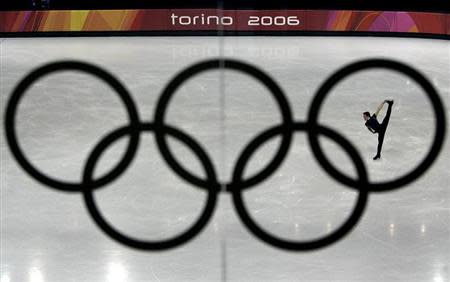Doping-IOC re-testing 2006 Torino samples for doping
By Karolos Grohmann Berlin (Reuters) - Samples stored from the 2006 Torino winter Olympics are being retested by the International Olympic Committee (IOC) as the eight-year statute of limitations runs out next year and as two labs find hundreds of unrelated positive tests. The IOC official said the retests were in no way connected to a German state television report about two doping labs finding hundreds of positive tests using new methods. The IOC is eager to root out cheats long after Olympic Games by using new methods of tracing known banned substances or substances that were not known at the time. "We are re-testing Torino Games samples as planned. This is not linked to that report," the official told Reuters. The IOC can re-test athletes' samples from its own events up to eight years after the Games and can sanction them. They did so with five samples from the 2004 Athens Olympics coming back positive. According to German ARD broadcaster labs in Cologne and Moscow found traces of anabolic steroids in hundreds of urine samples using the new testing method. It was not clear which athletes and what sports were involved and when the samples were taken. "This case is a good example of the necessity of performing retests on Olympic doping samples. I would certainly conduct retests here," Arne Ljungqvist, head of the IOC's medical commission told ARD. "We have the mandate for that, after all". Germany's Anti-Doping Agency (NADA) said on Tuesday none of the positive tests unearthed in tests it had authorized since late last year involved German athletes, adding, however, it would start re-testing older samples with the new methods. "Since the end of 2012 NADA tested more than 3,500 samples using the refined methods. All samples of German athletes tested negative," it said in a statement. "NADA also plans to re-analyze samples of selected sports and disciplines that have been stored for a longer period of time." NADA also praised the new testing methods as a valuable tool to catch cheats, "after German labs using these methods discovered many positive tests of foreign athletes which would have not been discovered before." Oral-Turinabol and stanozolol, the steroid Canadian sprinter Ben Johnson used at the 1988 Olympics in Seoul, were the banned substances found in the samples. The samples would have gone undetected a year ago as detection windows for the substances were significantly shorter with the conventional detection method, officials from the lab said. "With this detection method, 100 urine samples have now tested positive that would previously have turned up negative," Grigory Rodchenko, head of the Mosow control laboratory, added. (Writing by Sudipto Ganguly and Karolos Grohmann; editing by Amlan Chakraborty)


